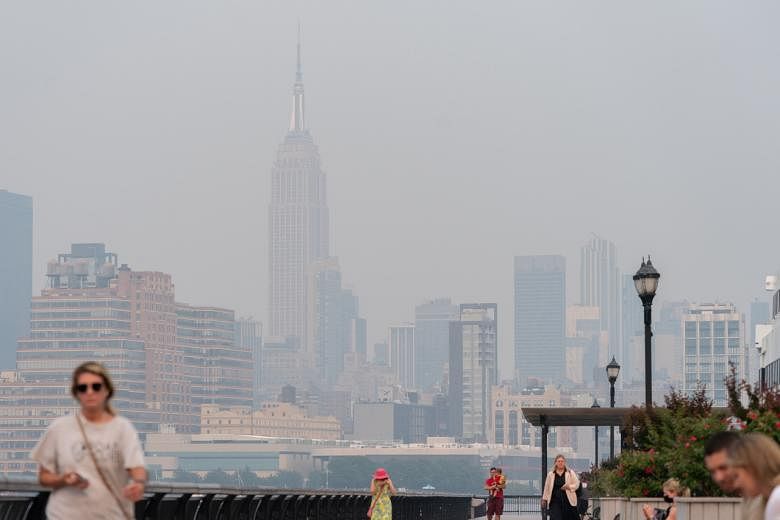NEW YORK (BLOOMBERG, NYT) - Stocks fell as traders assessed weak jobs data at a time when the US Federal Reserve is considering a stimulus reduction.
Most groups in S&P 500 retreated, while the Nasdaq 100 outperformed major benchmarks. The Treasury yield curve steepened amid reduced bets the Fed will start any policy normalisation soon.
Nonfarm payrolls rose 235,000 last month - trailing all forecasts - after an upwardly revised 1.05 million gain in July.
Employment in leisure and hospitality, which has posted strong gains recently, was flat amid the spreading delta variant and persistent hiring challenges. Comments: "This is a major miss and screams delta disruption," said chief strategist at Principal Global Investors Seema Shah. "Today's very weak number will likely sway the Fed to a November taper, if not later."
"The jobs report means slower economic growth, but also means the Fed is not going to tighten any time soon, and that should significantly limit any negative impact on markets," said Mr Brad McMillan, chief investment officer at Commonwealth Financial Network.
"I don't think it's going to change much for the Fed taper timeline," said Mr Zhiwei Ren, portfolio manager at Penn Mutual Asset Management. "The consensus is November, December - I think nothing changes. We have a number that was weak, but if we look below the surface, it's quite strong actually because of wage growth."
The Fed has been buying $120 billion in government-backed bonds each month to keep longer-term interest rates low and many types of borrowing cheap, bolstering lending and spending to help the economy heal.
Officials are debating when and how to pare back those bond purchases, and investors are looking for an announcement about the planned start of the so-called taper at one of the Fed's coming meetings.
But central bankers have tied their policy path closely to the labor market, suggesting that the economy has not yet quite achieved the "substantial further progress" they had hoped to see on the jobs front.
Officials including Jerome Powell, the Fed chair, have signaled that although the economy has made adequate strides toward the central bank's inflation goal to justify a slowdown in bond buying, they would like to see continued job gains before they feel confident in removing support.
Powell said during a speech last week that as of the Fed's July meeting, he and most of his colleagues thought the Fed could start reducing the pace of asset purchases this year if the economy performed as they expected.
The Fed has other tools to support the economy, even after it begins to slow its bond purchases. The central bank's main policy interest rate, which guides short-term borrowing costs and affects consumer rates from mortgages to car loans, is at rock bottom and is likely to stay there for months or even years.
Slowing bond purchases will be the first step toward a more normal policy setting, and a sign that the Fed thinks the economy has come through the turbulent pandemic lockdown period and is making strong progress toward a full recovery.

